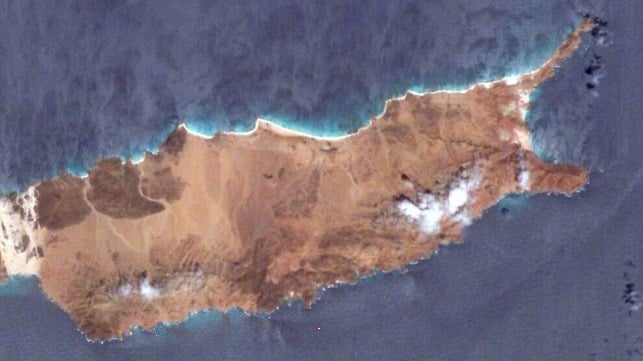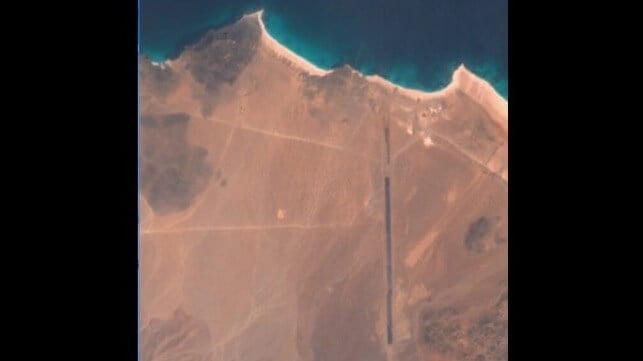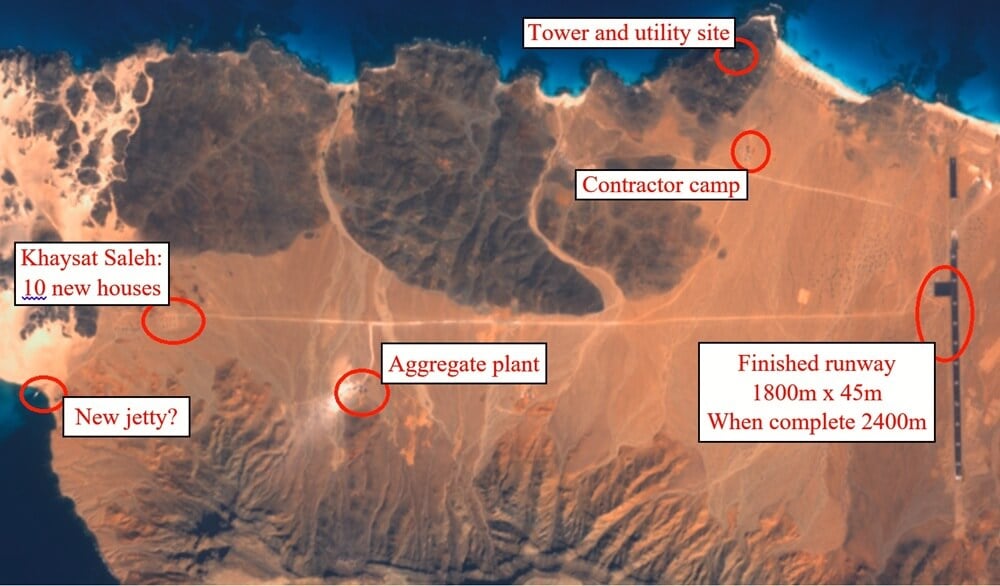Mysterious Airfield on Gulf of Aden is Nearly Complete
Someone is rushing to complete the airfield on Abd Al Kuri as conflict intensifies over Yemen

As the risk grows of further escalation of the conflict over Yemen and its surrounding sea channels, Israel has begun to broaden its attacks on the Houthis to include ports and supply chains stretching back into Iran. Some commentators have urged that a complete blockade be imposed on Houthi-controlled Yemen, with the interdiction of all sea and air traffic between Iran and Yemen. Others in Israel have suggested that associated targets within Iran should also be considered in scope.
If one wanted to respond rapidly to Houthi targets of opportunity, such as an attack being mounted on a merchant ship, then at present one generally needs a naval escort close by or an aircraft carrier. Most of the Houthis' adversaries, however, need to launch from airfields thousands of kilometers away, presenting intelligence, targeting and refueling challenges and rendering impossible a quick response to an evolving tactical situation.
In this context, an airfield on the Yemeni island of Abd Al Kuri - next to the Guardafui Channel - acquires a greater strategic significance. Aircraft flying from Abd al Kuri would dominate the shipping channels through the Gulf of Aden to the Strait of Bab El Mandeb, and could maintain a continuous presence or a quick response capability to mount tactical missions in response to fleeting threats to merchant shipping.
Work started on the airfield on Abd al Kuri in 2021, but has proceeded slowly. For months on end, no progress was visible. But in recent weeks, work has accelerated. As of December 23, 1800 meters of runway had been completed, and had been painted up with distance markers and piano keys at the southern end. The apron has also been surfaced - although is probably only big enough to turn around visiting aircraft.

Unfinished, unpainted runway on Abd al Kuri, October 2024 (Sentinel-2)

Signs of new activity at Abd al Kuri, December 23, 2024 (Sentinel-2 / Jonathan Campbell-James)
Curiously, as of December 28, there was still a gap in the runway at its northern end, which if filled would complete a runway of 2400 meters in length. In the intervening five day period, piano keys had also been painted on the far northern end of the full-length runway, on the far side of the gap.
The runway - when finished - is assessed to be of sufficient strength to support a full range of strike, maritime reconnaissance and heavy transport aircraft; a crushing plant has been operating three miles to the southwest, with trucks transporting aggregate to construct foundations sufficient to bear the weight of large aircraft.
What appears to be a barracks with ten new block houses has been built at Khaysat Saleh, four miles to the west of the airfield, with the road between showing signs of recent heavy use. A new jetty appears to have been built on the beach at Kilmia, facing south and in the lee of the island - thus better protected from potential Houthi drone attack than the storm-exposed jetty previously in use on the northern coast.
There appears to be some form of utility site on the high point of a 100-meter hill to the west of and adjacent to the northern end of the airfield. The hilltop site overlooks the northern coast, is serviced by a well-used road, and has been occupied and in use for at least 15 years. The purpose of the site is unclear, but it could be a radio antenna or water pumping site. It also would be well-positioned to serve the communication needs of the airfield. Possibly connected to rumors circulating in the Yemeni press that it was serving as an intelligence collection station, the site attracted an unusual degree of satellite imaging attention in October.
At the rate that work is progressing, it appears that the airfield will be capable of hosting rudimentary operations within weeks, at which point it may become clearer for whom and what purpose this airfield dominating the sea approaches to the Gulf of Aden has been built. At the very least, it could be useful as a diversionary airfield in emergencies. Echoing the Diego Garcia saga, it is likely to have been built to the detriment of rather than for the humanitarian benefit of the local inhabitants, if indeed any are allowed to remain on the island once flight operations commence.
